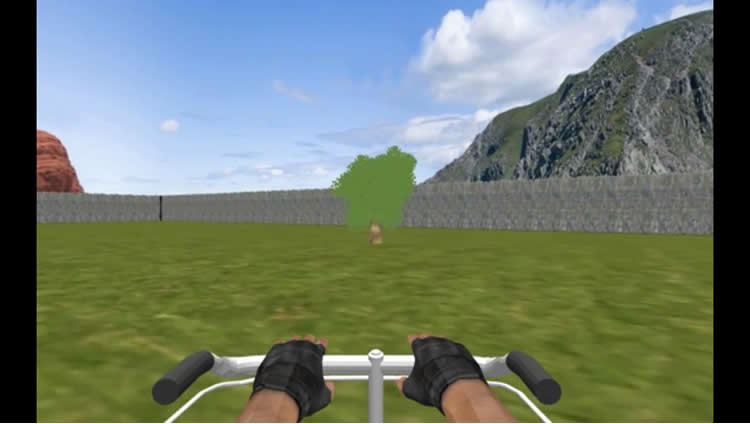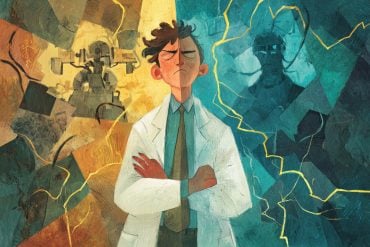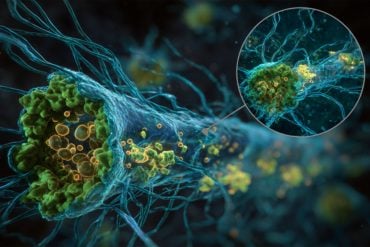Summary: A new study reports DBS does not improve memory performance.
Source: Cell Press.
Deep brain stimulation (DBS) of areas in the brain known to be involved in making memories does not improve memory performance, according to a study by Columbia University researchers published December 7 in Neuron. The study found a range of memory impairment of 5% to 20% with stimulation. No participants showed memory improvement. The study negates earlier findings that suggested a benefit.
But the research doesn’t close the book on DBS as a possible intervention for individuals with memory problems caused by disease or trauma. Rather, the findings suggest that if this specific form of stimulation diminishes memory performance, another approach may improve it. “We may need a different kind of stimulation protocol to affect this region in a good direction,” says lead investigator Joshua Jacobs, assistant professor of biomedical engineering at Columbia’s Fu Foundation School of Engineering and Applied Science.
Jacobs’ investigation was inspired by a 2012 study reported in the New England Journal of Medicine that showed a 64% improvement in memory performance for memories formed while subjects were experiencing brain stimulation. The findings were encouraging, but they ran counter to scientific evidence suggesting that the kind of stimulation used in the study would inhibit neurons and potentially impair memory. “We had conflicting thoughts,” says Jacobs. “So we thought it would be important to replicate this kind of finding.”
Deep brain stimulation is an invasive technique that involves the implantation of electrodes deep into the brain and then running current through them to electrically stimulate nearby neurons. To test the technique, both studies recruited epilepsy patients who already had electrodes implanted for the purpose of mapping seizures.
Both studies presented subjects with similar memory tasks. A spatial task involved remembering the location of an object in a 3D virtual space. Participants would navigate through the space to find an object. During control sessions, they received no stimulation. In stimulation sessions, they would experience 50 pulses of electrical current per second for 5 seconds. “Stimulation occurs only during the time that people are encoding the memory,” says Jacobs. “The task was well controlled.”
A verbal task involved recalling words on a list. Electrical pulses were delivered for 4.6 seconds while participants studied the list.
The studies differed, however, in that Jacobs observed his subjects as they performed 48 memory retrievals per session, 8 times as many as in the previous study. He also enrolled 49 subjects. The previous study included 7. “It’s quite a bit bigger and more statistically powered, so it’s more likely to produce accurate results,” says Jacobs.
None of the participants showed statistically significant improvement. On average across both tasks, stimulation of the entorhinal cortex resulted in a reduced accuracy in memories of 9% compared to non-stimulated memories. Stimulation of the hippocampus resulted in 8% impairment on average. Impairment ranged from 5% to 20% across all regions stimulated for both tasks.
The study’s measurement of spatial memory also differed from the earlier study. To measure spatial memory, participants revisited the 3D virtual space–this time, without the object being present in the space and without stimulation–and navigated to the place they recalled to be the object’s location. Jacobs’ team then calculated how far off the remembered locations were from actual locations.

In the previous study, the objects remained visible in the virtual space during the recall test, potentially skewing results in the positive direction for participants lucky enough to spot the object while navigating the space.
Such confounders often occur in early studies of new techniques, say Jacobs. Follow-on studies are important because they improve methods. “Theirs was a first study of its kind,” says Jacobs. “It’s important to improve the protocol in a way that quantifies spatial memory more precisely.”
While the study did not improve memory, it did show that it is possible to alter a neural process as complex as memory using electrical stimulation. So Jacobs and colleagues are currently working to devise more complex DBS interventions that respond to brain activity in real time and boost memory in the positive direction. “The simple approach to stimulation doesn’t work very well, so we’re trying to develop more a more advanced approach,” he says.
Source: Joseph Caputo – Cell Press
Image Source: NeuroscienceNews.com image is credited to Jacobs et al./Neuron 2016
Original Research: Full open access research for “Direct Electrical Stimulation of the Human Entorhinal Region and Hippocampus Impairs Memory” by Joshua Jacobs, Jonathan Miller, Sang Ah Lee, Tom Coffey, Andrew J. Watrous, Michael R. Sperling, Ashwini Sharan, Gregory Worrell, Brent Berry, Bradley Lega, Barbara C. Jobst, Kathryn Davis, Robert E. Gross, Sameer A. Sheth, Youssef Ezzyat, Sandhitsu R. Das, Joel Stein, Richard Gorniak, Michael J. Kahana, and Daniel S. Rizzuto in Neuron. Published online December 7 2016 doi:10.1016/j.neuron.2016.10.062
[cbtabs][cbtab title=”MLA”]Cell Press “Deep Brain Stimulation May Not Boost Memory.” NeuroscienceNews. NeuroscienceNews, 8 December 2016.
<https://neurosciencenews.com/dbs-memory-neuroscience-5708/>.[/cbtab][cbtab title=”APA”]Cell Press (2016, December 8). Deep Brain Stimulation May Not Boost Memory. NeuroscienceNew. Retrieved December 8, 2016 from https://neurosciencenews.com/dbs-memory-neuroscience-5708/[/cbtab][cbtab title=”Chicago”]Cell Press “Deep Brain Stimulation May Not Boost Memory.” https://neurosciencenews.com/dbs-memory-neuroscience-5708/ (accessed December 8, 2016).[/cbtab][/cbtabs]
Abstract
Direct Electrical Stimulation of the Human Entorhinal Region and Hippocampus Impairs Memory
Highlights
•Deep brain stimulation in the entorhinal region and hippocampus impairs memory
•Stimulation at 50 Hz impairs both spatial and verbal memory encoding
•A causal role for the human medial temporal lobe in memory encoding is demonstrated
Summary
Deep brain stimulation (DBS) has shown promise for treating a range of brain disorders and neurological conditions. One recent study showed that DBS in the entorhinal region improved the accuracy of human spatial memory. Based on this line of work, we performed a series of experiments to more fully characterize the effects of DBS in the medial temporal lobe on human memory. Neurosurgical patients with implanted electrodes performed spatial and verbal-episodic memory tasks. During the encoding periods of both tasks, subjects received electrical stimulation at 50 Hz. In contrast to earlier work, electrical stimulation impaired memory performance significantly in both spatial and verbal tasks. Stimulation in both the entorhinal region and hippocampus caused decreased memory performance. These findings indicate that the entorhinal region and hippocampus are causally involved in human memory and suggest that refined methods are needed to use DBS in these regions to improve memory.
“Direct Electrical Stimulation of the Human Entorhinal Region and Hippocampus Impairs Memory” by Joshua Jacobs, Jonathan Miller, Sang Ah Lee, Tom Coffey, Andrew J. Watrous, Michael R. Sperling, Ashwini Sharan, Gregory Worrell, Brent Berry, Bradley Lega, Barbara C. Jobst, Kathryn Davis, Robert E. Gross, Sameer A. Sheth, Youssef Ezzyat, Sandhitsu R. Das, Joel Stein, Richard Gorniak, Michael J. Kahana, and Daniel S. Rizzuto in Neuron. Published online December 7 2016 doi:10.1016/j.neuron.2016.10.062






